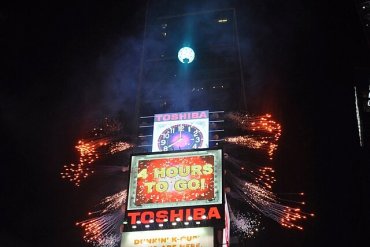What Will Happen When Moshiach Comes?
Dear Jew in the City,
A few weeks ago, you discussed when Moshiach will come. What will happen when he gets here?
Sincerely,
Incredulous
Dear Incredulous-
Ah, a follow-up question! I love a good sequel as much as the next guy but with rare exception, they’re usually not as satisfying as the original. Here, too, I’ll answer the question but it may not be so satisfying if you’re expecting an age of miracles. Which is a shame, because it should be extremely satisfying, with or without miracles.
Maimonides addresses this topic in the very last chapter of his magnum opus, the Mishneh Torah. In Hilchos Melachim (the Laws of Kings), chapter 12, he writes, “Don’t think that any aspect of the world’s nature will change in the messianic era or that there will be anything new in the work of creation. Rather, the world will continue as it always has” (12:1). That actually sounds pretty mundane. In the next halacha, the Rambam quotes the Talmud (Brachos 34b) that the only difference between the world as it currently is and the messianic era is the absence of our subjugation to the other nations. That part sounds rather significant!
The Rambam acknowledges verses like Isaiah 11:6, which states, “The wolf will dwell with the lamb and the leopard will lie down with the kid” but he explains that such things are metaphors for how Israel will finally dwell peacefully with her neighbors, who currently attack her like predators. He says that other such prophecies are likewise allegorical and, when the messianic era arrives, we will understand all the metaphors.
So let’s look at what will occur:
First and foremost, the Beis HaMikdash (Temple) will be rebuilt. The prophet Ezekiel foretold this when he wrote, “I place My Sanctuary in their midst forever…The nations will know that I am God, Who sanctifies Israel, when My Sanctuary will be in their midst forever” (Ezekiel 37:26-28). The future third Temple is described in great detail starting in Ezekiel chapter 40.
Additionally, the exiled Jews around the world will be returned to the land of Israel. The Torah itself foretells this (“God will return your captives…He will gather you from among all the nations where God has scattered you…” Deuteronomy chapter 30). This promise is reiterated in Isaiah chapters 11 and 43, Jeremiah chapter 23, Ezekiel chapters 20, 36, and 39, and Amos chapter 9. This includes the ten “lost” Tribes (see Talmud Sanhedrin 110b). [That the Moshiach is the one who will spearhead the rebuilding of the Temple and the ingathering of the exiles is codified in Hilchos Melachim 11:1.]
In the messianic era, good will triumph over evil. Zephaniah 3:13 tells us that “The remnant of Israel will do no wrong, they will speak no lies and a deceitful tongue will not be found in their mouth.” Other chapters that describe the ascent of righteousness include Isaiah 60, Jeremiah 50, Ezekiel 37 and Malachi 3.
Not only that, the whole world will abandon idolatry and turn to the service of God. Isaiah 40:5 tells us that “The glory of God will be revealed; all flesh will see it together because the mouth of God has spoken.” That other nations will join us in this service is evident from such verses as Zechariah 14:9, “God will reign over the entire earth. On that day God will be One and His Name One.” Other sources for this include Isaiah chapters 2, 11 and 52, Jeremiah 31, Joel 3, Micah 4, Zephaniah 3 and Zechariah 9.
The promise of peace also appears throughout Tanach. Both Isaiah 2:4 and Michah 4:3 tell us that “…they will beat their swords into plowshares and their spears into pruning-hooks. Nation will not lift sword against nation, and they will not wage war any longer.” Hosea 2 and Zechariah 9 also describe world peace, while the aforementioned metaphors of predator and prey dwelling together peacefully appear in Isaiah 11 and 65.
I’m not even getting into the revival of the dead, which is an event subsequent to and separate from the arrival of Moshiach (and perhaps a topic for another day).
Returning to the Rambam, he tells us that we don’t await the messianic era in order to party, to be honored or to rule the world. We’re not in it for any selfish motivation or temporal pleasure. Rather, we yearn to be able to serve God without the distraction of oppression so that we can get closer to Him (Melachim 12:4).
The details of how all these things will come about are unknown. All we have is the “big picture” that God revealed to the prophets, not an exhaustive play-by-play. We’ll find out the details when they happen. The Rambam tells us we shouldn’t be concerned with all the fanciful stories (which he considers metaphors) because they are not essential to our faith in the messianic era (Melachim 12:2).
The world will be a wonderful place with the Temple rebuilt, the Jews in Israel and the other nations not oppressing us. Maybe a lion won’t literally eat straw like an ox (Isaiah 65:25), we won’t literally fly on eagles’ wings (Isaiah 40:31) and women won’t literally give birth every day (Talmud Shabbos 30b). But will an absence of such things really spoil your enjoyment of the Messianic era? Somehow I think it’ll still be a pretty good deal!
Sincerely,
Rabbi Jack Abramowitz
JITC Educational Correspondent
If you found this content meaningful and want to help further our mission through our Keter, Makom, and Tikun branches, please consider becoming a Change Maker today.








1 comment
Sort by
Great Article!
Another goodread on this subject is Rabbi Aryeh Kaplan’s very natural portrait of the Messianic era and the Messiah himself. I think this is in the “Rabbi Aryeh Kaplan Anthology” Volume I page 314, titled “The Real Messiah”.